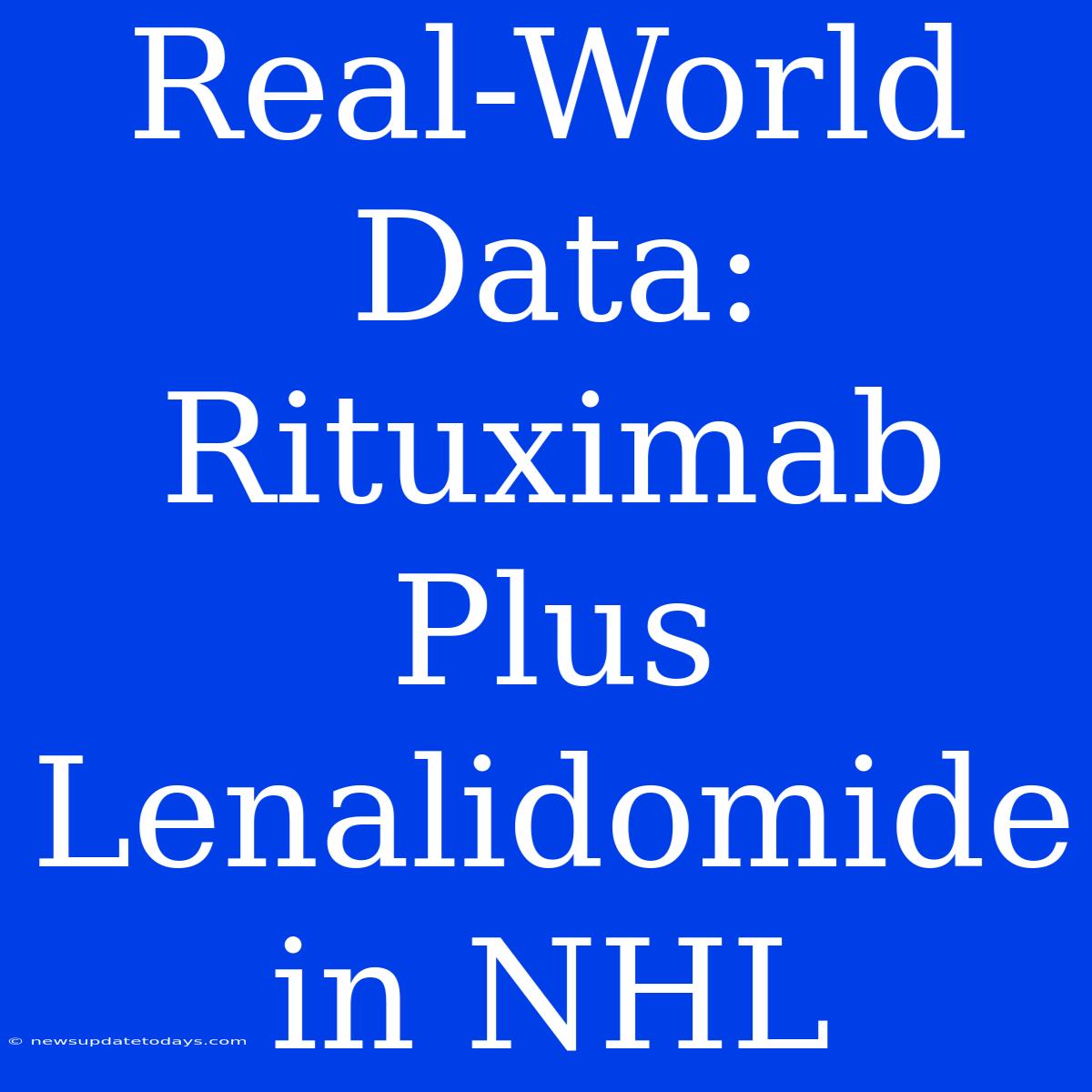Real-World Data: Rituximab Plus Lenalidomide in Non-Hodgkin Lymphoma (NHL)
Abstract: This article explores the efficacy and safety of the Rituximab plus Lenalidomide combination therapy in Non-Hodgkin Lymphoma (NHL) based on real-world data. We delve into studies demonstrating its clinical benefits, potential limitations, and future directions for research in this area.
Introduction: Non-Hodgkin lymphoma (NHL) encompasses a diverse group of cancers originating in the lymphatic system. Treatment strategies vary depending on the specific subtype, stage, and patient characteristics. Rituximab, a monoclonal antibody targeting CD20, and lenalidomide, an immunomodulatory drug, have demonstrated individual effectiveness in NHL treatment. Their combination has emerged as a promising therapeutic approach, particularly in relapsed/refractory settings. This article reviews real-world data evaluating the effectiveness and safety profile of this combination therapy.
Real-World Evidence of Rituximab Plus Lenalidomide in NHL:
While clinical trials provide valuable insights, real-world data (RWD) offer a more comprehensive understanding of treatment efficacy and safety in diverse patient populations. RWD studies on Rituximab plus Lenalidomide in NHL often reflect the complexities of routine clinical practice, capturing data from larger and more heterogeneous patient groups compared to highly selected trial populations.
Observed Efficacy:
Numerous retrospective studies and observational cohorts have explored the real-world effectiveness of the Rituximab-Lenalidomide combination. These studies consistently suggest that this regimen demonstrates:
- High Response Rates: Real-world data generally support high overall response rates (ORR) in relapsed/refractory NHL patients, although the exact figures vary depending on the specific NHL subtype and patient characteristics included in each study.
- Prolonged Progression-Free Survival (PFS): Several studies indicate a significant improvement in PFS compared to historical controls or other treatment strategies, highlighting the potential for durable responses.
- Improved Overall Survival (OS): While OS data is less consistently reported, some RWD studies suggest a potential improvement in overall survival with the Rituximab-Lenalidomide combination, particularly in specific NHL subtypes.
Safety Profile in Real-World Settings:
RWD also offers valuable insights into the safety profile of Rituximab plus Lenalidomide. Common adverse events (AEs) observed in real-world settings align with those reported in clinical trials, including:
- Hematologic Toxicities: Myelosuppression (low blood cell counts) remains a significant concern, requiring close monitoring and potential dose adjustments.
- Infections: Increased susceptibility to infections is a common AE, partly due to the immunosuppressive effects of the treatment.
- Other AEs: Fatigue, nausea, diarrhea, and rash are also frequently reported.
Limitations of Real-World Data:
It's crucial to acknowledge limitations associated with RWD analysis:
- Heterogeneity of Patient Populations: Real-world datasets often include patients with varying disease characteristics, making it challenging to draw definitive conclusions about specific subgroups.
- Missing Data: Incomplete data collection can affect the accuracy and reliability of the results.
- Selection Bias: Patient selection in real-world settings might differ from that in controlled clinical trials, potentially influencing the observed outcomes.
Future Directions and Conclusion:
Ongoing research is essential to refine our understanding of Rituximab plus Lenalidomide in NHL. Larger prospective real-world studies with standardized data collection protocols are needed to overcome the limitations of existing RWD. Further investigation into predictive biomarkers that can identify patients most likely to benefit from this combination is also crucial. The integration of RWD with data from clinical trials provides a holistic picture that guides clinical decision-making and informs future treatment strategies for NHL. The Rituximab-Lenalidomide combination shows promise based on available real-world evidence, but careful patient selection and close monitoring are vital for optimizing treatment efficacy and minimizing adverse events.

